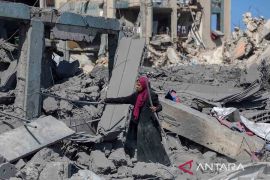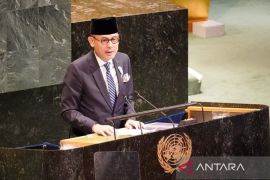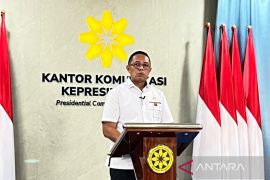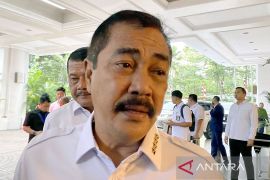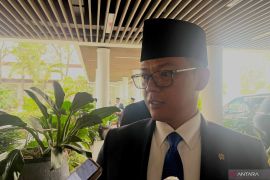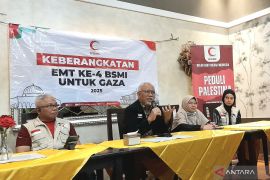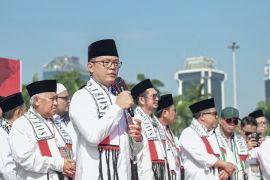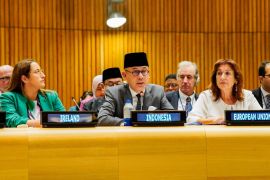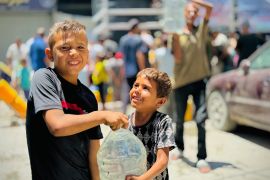"Two rockets fired from Gaza fell in an uninhabited area of the town of Sderot," police spokeswoman Louba Samri told AFP, and another crashed south of the town of Ashkelon.
A military source said a fourth rocket later fell near Ashkelon.
The Popular Resistance Committees (PRC), grouping Gaza militant organisations, said on Monday they had agreed to halt rocket fire on Israel and abide by an Egyptian-brokered truce after four days of deadly clashes.
The attacks were claimed in a joint statement issued in Gaza by groups not party to the truce -- the Ali Mustapha Brigades, the armed wing of the Popular Front for the Liberation of Palestine, and the al-Nasser Brigades, a dissident wing of the PRC.
At a news conference in Gaza City, the PRC said its militants would respect a "temporary" ceasefire announced late on Sunday by the Hamas rulers of the Palestinian territory.
"We have temporarily stopped firing rockets at Israel according to the national consensus," said a masked spokesman for the group, which was blamed by Israel for a series of bloody attacks near Eilat last week that killed eight Israelis and sparked the latest round of bloodshed.
But the PRC, whose leader was killed in a series of Israeli air strikes late last week, said talk of a more permanent truce was "out of the question. We have an open account with the enemy until it leaves Palestinian soil."
The announcement came just hours after a senior Hamas official told AFP the factions had hammered out a truce agreement in talks with Egyptian officials, which would be contingent on Israel stopping its air strikes on Gaza.
"We have reached an informal agreement to establish a ceasefire from tonight on condition that Israel halts its attacks," he told AFP.
In a formal announcement on Monday, Hamas spokesman Taher al-Nunu thanked both Egypt and UN envoy Robert Serry for helping "to stop the aggression against Gaza."
"An agreement about a mutual truce was reached and we affirm that the Israeli occupation must commit to this truce because the factions told the government they are committed to it for as long as the occupation is," he said.
On Sunday night, the Hamas-run security forces were "instructed to stop the shooting" against Israel, with Palestinian police checking cars in the border area and checkpoints set up at the entrance to every town in Gaza.
Israel police said seven rockets were fired from Gaza early on Monday.
Army radio said Israel`s 15-member security cabinet decided against a ground operation for fear it "could trigger mass demonstrations in Egypt which could destabilise the regime in Cairo."
Such a step was also deemed damaging to Israel`s case a month before the Palestinians plan to seek UN membership, according to the radio.
Efforts to end the fighting in and around Gaza came as Israel sought to head off a diplomatic crisis with Egypt sparked by Thursday`s attacks near Eilat, with Cairo saying five policemen had been killed by Israeli fire during the hunt for gunmen along the border.
Two days later, Egypt`s state television said Cairo was going to recall its envoy from Israel in protest.
Israeli Defence Minister Ehud Barak expressed "regret" over the deaths and promised an investigation, but Egypt said it wasn`t enough, although it made no move to confirm reports it would recall its envoy.
The looming spectre of a crisis with Egypt played a concrete role in bringing about an end to the Gaza confrontations, according to Israeli press reports.
Tensions in and around Gaza kicked off after the Negev desert shooting attacks with Israel launching a wave of retaliatory air strikes against the PRC, killing its leader and several other of its senior militants.
In the following days, Israeli air strikes killed 15 Palestinians, nine of them militants, while more than 50 people were wounded.
Over the same period, militants fired more than 100 rockets and mortars at Israeli towns and cities in the south, killing one man and injuring more than 20, one critically.
(U.H-RN)
Editor: Priyambodo RH
Copyright © ANTARA 2011
